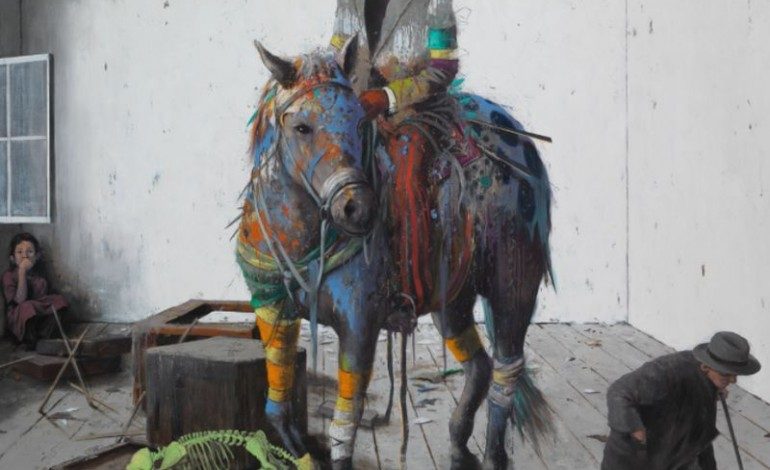

Jack of All Trades
Eclecticism is an underrated art. Many an artist has attempted fusions and blends, songs that flit between genres and boundary lines, but rarely are they so successful as the latest entry by UNKLE. A standard fusion album will work to blend genres together within songs, generally with mixed results. On The Road Part 1 UNKLE often chooses to sidestep this issue entirely by having each song jump from one genre to the next, creating an entrancing experience that is easily capable of holding a listeners attention for its substantial run time.
The album begins with “Iter 1: Have You Looked at Yourself” which serves as a brief spoken word intro. There are five of these total throughout the album, and they go a long way towards connecting the generally disjointed record, serving as a glue that binds the narrative of conflicting styles. While the above describes the album as “disjointed” it shouldn’t be taken as a negative, perhaps a better term is untethered, the album is free, vibrant, and uninhibited, it yearns to break free of convention and venture off into the realm of whimsy and pure expression. The album heartily succeeds in all aforementioned regards. The first true track “Farewell” is a sweet love ballad that features washed out singing and repetitive choruses over acoustic guitars and an addictive atmospheric background. The next track “Looking for the Rain” switches into a string backed dance track. The drum beat is low and driving, consistent and powerful, and were it not for the vocals, which sound as though they could have been pulled directly from an album by The National; it wouldn’t be hard to imagine this being successful in the stranger clubs around the world. The end of the track pulls another switch by incorporating a grinding electric guitar and fuzzed out snares, pulling the listener through an albums worth of journey in a single album.
The rest of the album continues to go through massive changes, from an IDM inspired ritual on on “Cowboys or Indians” to a James Blake-esque piano ballad on “Stole Enough.” To track the influence of genres on the final work is nearly as futile as counting the grains of sand on a beach, each time you get a close count a new element emerges. The album takes these influences and differences and near seamlessly blends them together through the ballsy method of seemingly ignoring it altogether. UNKLE doubtlessly poured an absurd amount of time into making this work come across as so cohesive but it feels almost effortlessly stitched together, each track bleeding and fading into the next with such precision that even the jump from piano ballad to dance club doesn’t feel jarring.
This is a premiere album when it comes to the art of track order and selection. The notion that someone could make a record so completely cohesive, yet so entirely unrelated to itself, is frankly offensive to an artist of more standard talents. UNKLE however is not one of those artists, and The Road Part 1 should be put in museums and studied by aspiring musicians, for the time being, they may have to settle for creating one of the most technically proficient and endlessly listenable records of the year.
